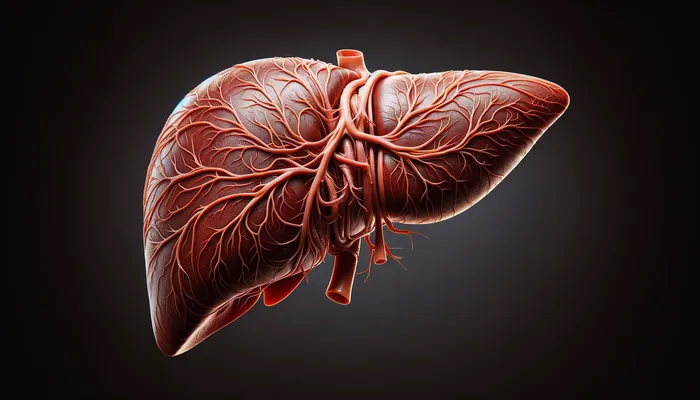A healthy liver is crucial for maintaining overall health, as it works tirelessly to cleanse the blood, filter toxins, store and circulate blood, and carry out numerous other vital functions. When the liver is not working efficiently, it can have severe consequences, with the American Liver Foundation warning, “anything that keeps your liver from doing its job may put your life in danger.” It’s essential to recognize the signs of a struggling liver and take appropriate steps to keep it operating smoothly.
Recognizing signs of a sick liver
While it’s important to consult a doctor about liver health and potential symptoms, there are 10 common signs that your liver may be in need of some extra care:
- Swollen abdomen or ankles: Fluid retention, or edema, can indicate liver disease. When the liver is not functioning properly, it can cause fluid to build up in other parts of the body.
-
Yellow skin or eyes: Jaundice, the yellowing of the skin and eyes, occurs when the liver cannot break down old red blood cells properly, leading to a buildup of bilirubin in the bloodstream.
-
Nausea: Nausea and vomiting are common symptoms of liver disease, as toxic substances build up in the body when the liver is unable to filter them out.
-
Dark urine: Dark-colored urine can be an early sign of liver disease, as the body is unable to process bilirubin.
-
Pale, bloody, or tar-colored stool: Changes in bowel movements, including pale or bloody stool or changes in stool color, can result from the liver’s inability to produce enough bile or process bilirubin.
-
Loss of appetite: A sick liver can cause changes in metabolism, leading to a loss of appetite and subsequent weight loss.
-
Chronic fatigue: As the liver struggles to filter out toxins, the body’s energy levels can become depleted, leading to chronic fatigue.
-
Bruising easily: A poorly functioning liver may not produce enough clotting factors, causing an increased tendency to bruise or bleed easily.
-
Itchy skin: Liver disease can cause irritated or itchy skin due to a buildup of toxins in the body.
-
Abdominal pain: Abdominal pain, especially on the right side where the liver is located, may indicate liver disease. Seek immediate medical attention if you experience severe abdominal pain.
As studies show that up to 50% of people with underlying liver disease have no symptoms, it’s crucial to consult a doctor if you have any concerns about your liver health. They can help determine whether you’re at risk for liver disease and suggest appropriate tests and treatments.
Ways to protect your liver
There are various steps you can take to support your liver and maintain good health:
- Detoxification: Help your liver detoxify your body by consuming a healthy diet, staying hydrated, and taking natural supplements that can support its function. The liver works hard to remove toxins from your body, so providing the necessary support can lead to improved liver health.
-
Herbal remedies: Certain herbs, such as milk thistle, dandelion, and artichoke, have been shown to support liver health. These natural performance-boosters can help protect the liver and assist in its function.
-
Antioxidant-rich foods: Consuming antioxidant-rich foods, such as blueberries, can help combat fatty liver disease. Fat accumulation in the liver can increase the risk of insulin resistance, high cholesterol, heart disease, diabetes, and even cancer. Incorporating antioxidants into your diet can help protect your liver from this damage.
-
Be cautious with over-the-counter drugs: Various over-the-counter medications, such as painkillers, can contribute to liver damage. Always read labels and follow dosage instructions carefully to avoid potential harm to your liver.
-
Incorporate paleo foods: A paleo-style diet, which focuses on lean proteins, fruits, vegetables, and healthy fats, can promote liver health. Emphasizing paleo food choices can help keep your liver functioning optimally and support its ability to regenerate after injury.
In conclusion, maintaining a healthy liver is crucial for overall health and well-being. Recognize the signs of a struggling liver and take appropriate steps to keep it functioning efficiently. Consult a doctor if you have any concerns about your liver health and follow their advice for the best course of action.


![8 Simple Rules to Refresh Your Body with a Healthy Cleanse [See Pictures]](https://naturalhealthreserve.com/wp-content/uploads/2024/01/8-rules-healthy-cleanse-slideshow-300x168.webp)
